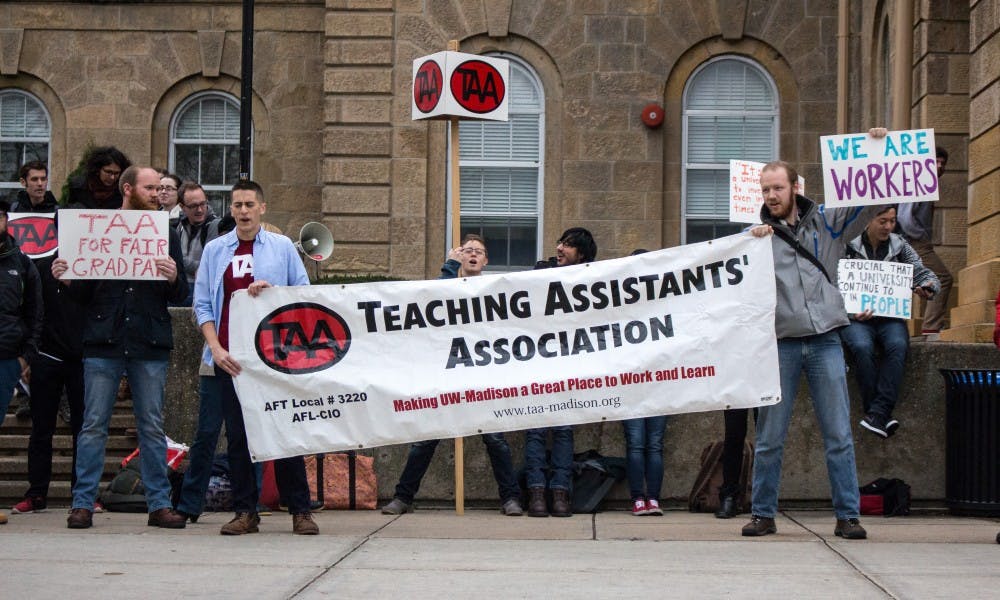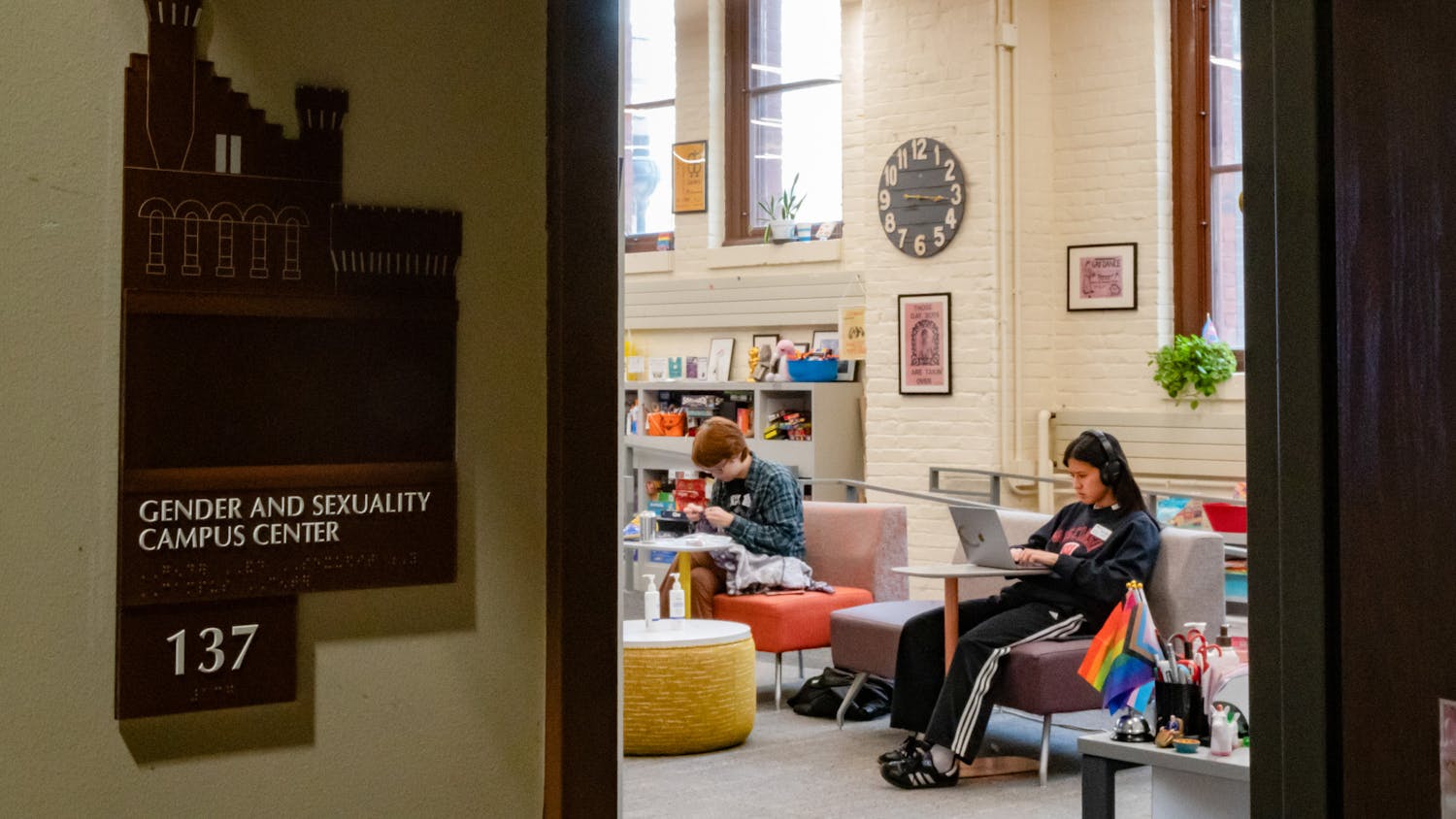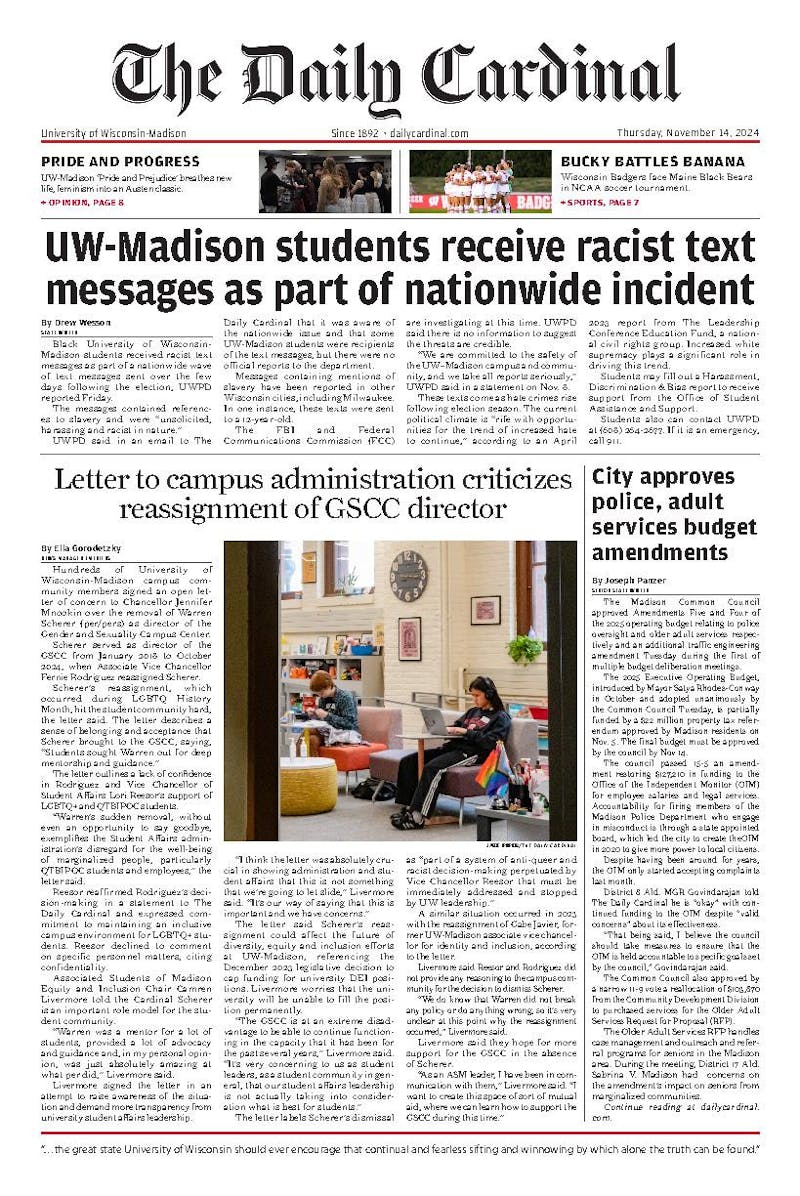The University of Wisconsin-Madison graduate assistant’s union, the Teaching Assistant Association (TAA), launched a campaign to improve working conditions for graduate student workers in bioscience departments including genetics and microbiology.
Their demands include $40,000 stipends, the elimination of unpaid teaching requirements, transparent laboratory graduation, retention rates, improved lab environments and respect of graduate student workers’ rights.
“Low stipend rates along with the housing price increase make it infeasible to focus solely on research work,” said a member of the union in response to a TAA internal survey.
UW-Madison spokesperson John Lucas told The Daily Cardinal UW-Madison’s training programs in the biological sciences and other fields are “aligned with those of our research peers across the country.”
“UW-Madison has increased minimum graduate assistant stipends by 14% for the academic calendar year 2024-2025 as part of a four-year stipend forecasting plan,” Lucas said. “Many individual graduate programs set stipend rates above the minimum to respond to competitive factors within the discipline.”
The minimum stipend for next academic year is $32,396, a 14% increase. The following years have a planned 10%, 5% and 5% increase in minimum stipends.
Biosciences programs are currently proposing a raise from $36,000 to $37,000 over the next year, a 2.5% increase. TAA co-president and Microbiology PhD student Madeline Topf said in a TAA press release when inflation averaged 2.9%, the planned increases are “detrimental for graduate workers in the Biosciences, who already do not make a living wage.”
Though genetics has indicated that their raise will be up to $38,000 — a raise of 5% — biochemistry and microbiology departments are still proposing $37,000.
“We do the research which leads to cancer cures, vaccines and often work overtime on our 20-hour/week contracts,” Topf said in the statement. “Low stipends hinder the competitiveness of our training programs, recruitment and retention of underrepresented students, and our scientific output.”
The TAA is also aiming to end unpaid teaching assistant requirements with this campaign, saying that many biosciences grad students are required to teach without pay for one or more semesters, which harms productivity and research.
“I was not able to get any research done when I had to TA because of how demanding it was,” a graduate student said in response to a union survey.
The campaign’s third request calls for transparency of laboratory graduation and retention rates so graduate workers can have more information before choosing a work environment. This would also help to track lab environments and reward positive ones, the TAA said.
No bioscience Principal Investigators, individuals who are in charge of leading research projects, have signed onto the letter yet, Topf told the Cardinal in an email, though the TAA urges them to.
“Their support would be valued, as they are our mentors, and bosses, and we are, quite honestly, struggling,” Topf said. “We are building density support in other Biosciences departments, and the campaign is ongoing and young.”
The TAA also asks both the biosciences departments and the university to protect graduate students’ organizing.
"The TAA is ready to assist and represent any graduate worker facing threats or retaliation for participating in legally-protected concerted activity,” said Bennett McIntosh, History of Science PhD candidate and chair of the TAA’s Contract Enforcement Committee.
The TAA’s release has received more than 200 signatures, including over half of genetics Ph.D. students. It has also been endorsed by United Faculty & Staff of Green Bay as well as United Faculty and Staff, which represents faculty and staff at UW-Madison.
Lucas said the UW-Madison Graduate School works with students to “understand and address issues and concerns that have been raised, including those in the biosciences.”
“The university continues to take steps to improve the overall graduate student experience, including substantial investment in mentoring,” Lucas said.
Annika Bereny is a Senior Staff Writer and the former Special Pages Editor for The Daily Cardinal. She is a History and Journalism major and has written in-depth campus news, specializing in protest policy, free speech and historical analysis. She has also written for state and city news. Follow her on Twitter at @annikabereny.






